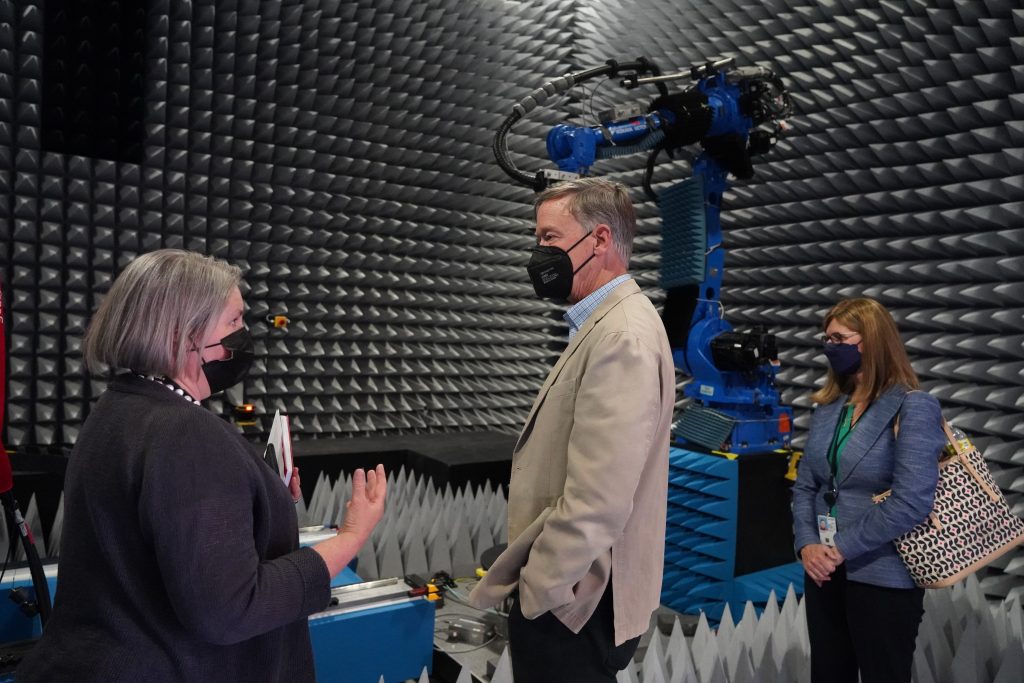Bill would boost funding for research & development, reinvigorate American manufacturing to strengthen key supply chains
Will help U.S. compete with China, build more semiconductors domestically and lower costs
Boulder, Colorado – U.S. Senator John Hickenlooper visited the National Institute of Standards and Technology (NIST) Boulder Campus yesterday to call for the swift passage of the Bipartisan Innovation and Competition Bill currently being finalized between the House and the Senate. Hickenlooper sits on the conference committee negotiating the bill.

For high-quality photos, CLICK HERE
“Passing the Bipartisan Innovation and Competition Bill will boost domestic manufacturing, upskill our workforce for the 21st century, strengthen our supply chains, and lower costs,” said Hickenlooper, Chairman of the Senate Subcommittee on Space and Science. “The NIST lab is at the forefront of this work, leading the way right here in Colorado. We’ve got to get it done ASAP.”
“NIST is ready to help resolve difficult supply chain issues and strengthen U.S. manufacturing, to aid one of the most significant new programs to bolster the semiconductor industry, and to secure our cyberspace,” said Under Secretary of Commerce for Standards and Technology and NIST Director Laurie Locasio. “The Department is fully committed to supporting the passage and implementation of the BIC. We will work across government and with the private sector to get this right.”
The Senate version of the competition bill includes a significant increase in funding for research, development, and commercialization activities in emerging technologies at the National Science Foundation and the NIST campus in Boulder. It will also provide a boost for the Department of Energy’s national laboratories, including the National Renewable Energy Laboratory (NREL) in Golden.
Specifically, the Bipartisan Innovation and Competition Bill would:
- Increase our investments in federal research and development
- Grow domestic semiconductor manufacturing capacity and take action to protect other critical U.S. supply chains and lower costs
- Enhance technology transfer and commercialization efforts, increasing the return on our R&D investment and focusing technology research in areas of critical national importance
- Create a diverse and geographically-distributed STEM, research, innovation, and manufacturing workforce
